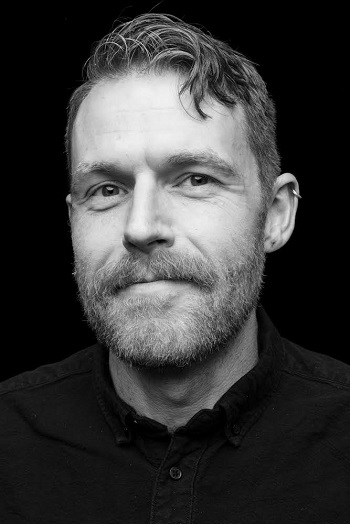
They May Not Mean To, But They Do
Contributor’s Marginalia: Matthew Nienow responding to Esther Lin’s “Three Sentences”
Any time I read a poem about the complexities of the parent/child relationship, I think of Larkin’s “This Be the Verse.” Not the whole poem, really, but the second line: “They may not mean to, but they do.” Perhaps I am, as a parent myself, guarding against the claim that caregivers inevitably mess up their children by hoisting their own unprocessed childhood baggage onto their young. While this harm often occurs, of course, Larkin’s claim that “they may not mean to” lends a mildly generous view, perhaps undeserved in some cases, to the fumbling dance of parenthood.
In Esther Lin’s “Three Sentences,” we are brought into the world of a speaker where this equation isn’t so simple, where a mother’s love is not guaranteed, where compassion and forgiveness are maybe on the table, but also maybe not.
The mother in Lin’s poems enacts a different kind of cruelty, as though she lacks any awareness of the impact of her words. The father calls her crazy, which initially seems like a straightforward dismissal, but then sneaks a bit of compassion into the mix by explaining why she acts the way she does. He goes so far as to say if you lived through what she did, “you would go crazy too.”
It is this duality, presented subtly and consistently, that sets Lin’s poem apart from Larkin, and many others who write about their caregivers. In the world of this poem, the mother loves the daughter. Then the mother no longer loves the daughter. The mother needs the daughter to care for a wound, and in her apparent appreciation at receiving such care, she joyfully brings up the fact that she almost terminated the pregnancy that culminated in the daughter’s life.
The daughter is hiding in the background throughout the poem, seemingly resilient in the face of this pain. We see her briefly, but the mother takes center stage. We come to understand that we cannot trust the mother. We can only trust that what is said may be taken back. That a compliment given may also contain a dose of poison. That the cause of cruelty, however certain, may be explained and perhaps even understood, even though the damage cannot be undone.
↔
In truth, I think of the second line of Larkin’s poem so often because of the harm I fear I have caused my own sons, however unintentionally, during the years when my active alcoholism played an oversized role in my family’s life. My boys were young then (I quit drinking six years ago), but we are not fully healed. I am not fully healed, though I am healthier than ever. I cannot see myself in the mother of Lin’s poems, but I can relate to an immaturity that wounds those in the innermost circle.
As I write about fatherhood, about grief and regret, and love, I appreciate Lin’s brave and fierce poems writing from the other side of such familial relationships where redemption isn’t guaranteed. And though our relationships may differ, we all have to face some version of Larkin’s assertion, that our caregivers will mess us up—that those of us who are parents will probably do some harm to those we claim to love the most.
↔
P.S.
It’s hard for me to talk about this poem without acknowledging Lin’s forthcoming debut, Cold Thief Place, which recently won the 2023 Alice James Award. As an Editorial Board member for AJB, I had the rare luck of spending a good deal of time with Lin’s collection before I even knew to whom the poems belonged (we read blind until the finalist stage); the poems in this forthcoming collection feature the mother, further developing the complexity of the parent/child relationship as presented in Lin’s two poems in this issue. Though “Three Sentences” is not a part of Cold Thief Place, we can assume the mother is the same.
